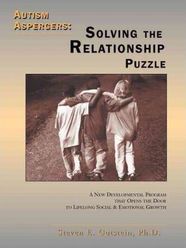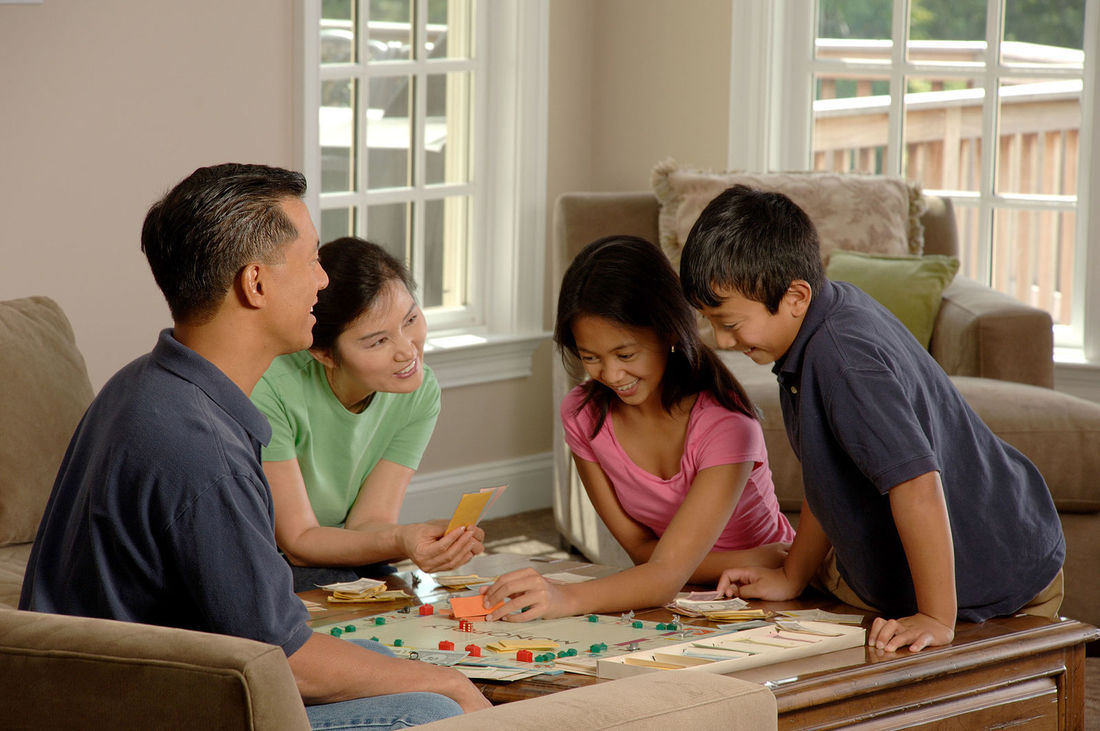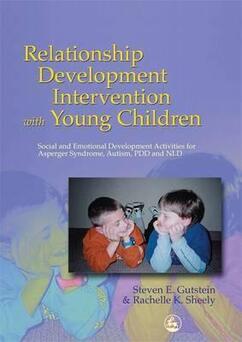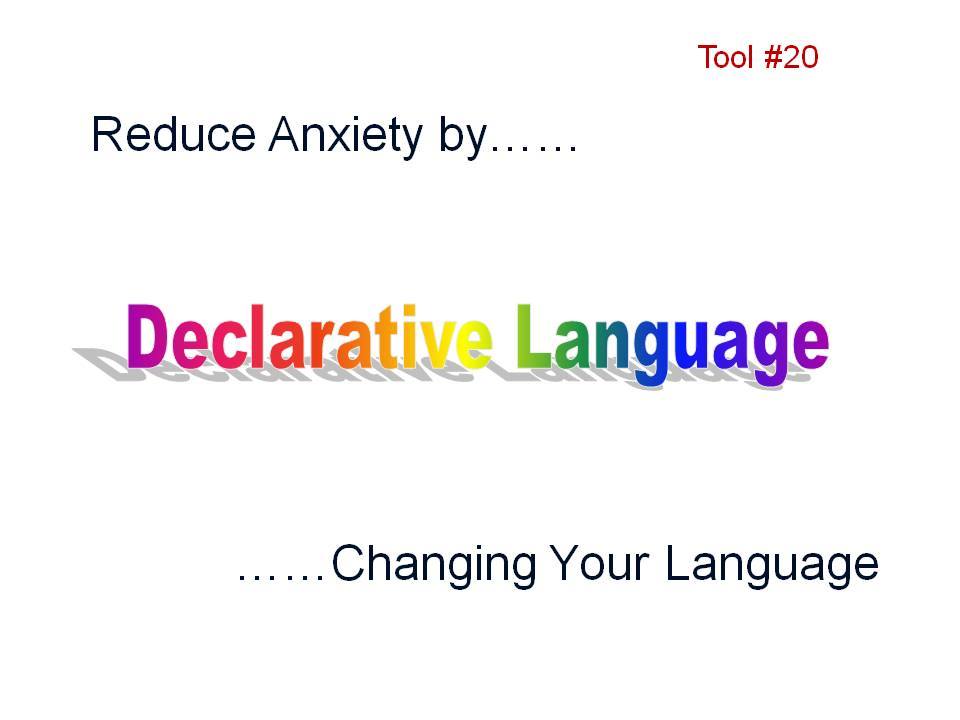RDI
|
|
Challenges an autistic individual may face
Strategies that are often used in other interventions that limit the internal experience, forming superficial interactions.
Why advocate for RDI? RDI allows the individual to appraise complex human interactions, understand another person's internal thoughts, it also can be served as a base platform for any other learning (eg. academics/ lifeskills/ communication) to be more effective, than one who learns from a person they are not even interested in. For example a child who may find it difficult to compromise and work together with their teachers and especially parents because of their difficulty to see another's perspectives. Thus it can affect their learning of new things with any person as well. |
Some benefits from Intervention
Find out more about the theory of RDI: This theory supports creating strategies that can work for the individual. Difference between Instrumental and
Experience Sharing Interactions |
RDI is suitable for the spectrum of Autism, ADHD, Bi-polar, Tourette, LD and even typical children. Only an individual with severe aggression and ODD may not benefit immediately unless addressing these challenges first. SPD individuals need to be accepted of their way of regulation and can be implemented with interventions together.
What skills are necessary for social communication and interactions?
|
Some of the main skillsets below that parents will gain and guide their learners in their interaction interventions.
ENJOYMENT
Without enjoying your time with another, it is hard to connect and derive value and pleasure in the interaction. It is also tough to develop conversations that involves things like humor or shared interests and feelings. REFERENCING
When developing friendships, children will reference their friends feelings, ideas and actions, to determine their own action during interaction. Referencing is a discovery of the internal minds of others. RECIPROCITY
Give and take relationships create equal partners, and later will develop mutual appreciation and support. REPAIR
During disagreements, conflict, we need to understand how to manage them without permanently damaging the relationship. More often than not, we need to understand the feelings of the others in such situations. Without being willing to "repair" the relationship, if we have unrealistic expectations or cannot see our part in resolving it, then the relationship may not heal. CO-CREATION
Joint sharing of enjoyment, improvising together on shared interests, sharing and appreciating different perspectives from each other can be very meaningful and satisfactory in a relationship. WE-GO
Coined by developmental researcher Bob Emde, it encompass the experience of operating as a group and do things that they cannot do alone.
SOCIAL MEMORIES
Shared memories can rekindle and maintain the joy, especially at difficult times, these bond the relationship further. MAINTENANCE
Any relationship needs a desire to commit time for another, in the absence of pressure or rewards, and keeping each other in contact with no agenda; just staying connected. ALLIANCE
Being a reliable friend, maintaining honesty and being there when they need them is essential to having a strong trust. Same goes for vice versa where u feel u are able to rely on another. As children get older they judge others base on words and deeds. ACCEPTANCE
Being at ease with someone who accepts another for all their strengths and weaknesses. |
This scale is a guide to
social communication developmental milestones
from the book "solving the relationship puzzle"
(0-6 months typical development)
(6-12 months typical development)
(12-18 months typical development)
(18-30 months typical development)
(30-48 months typical development)
(48 months onwards)
- Sharing face-to-face emotion. (Eg. Peekaboo can be impossible to understand without the understanding)
- Referencing face reactions to figure out what is the other person thinking and expecting. (Lack of referencing causing difficulty to follow)
- Getting excited with novel things that parents introduce. (Put up flight or fight when new things are introduced)
- Understanding and enjoying simple social activities. (Would not be able to feel excitement doing things together, may walk away)
(6-12 months typical development)
- Enjoying learning rules, roles and structure of shared activities. (May not want to compromise with rules and do their own ways)
- Adding new variations to activities (May resist any changes made to activity)
- Synchronizing own actions to another. (One walking far away from the other instead of together)
- Observing and regulating own actions to remain coordination with another. (May struggle to keep up or not react at all)
(12-18 months typical development)
- Enjoying shared novelty and changes. (May not appreciate the person's interests or inputs)
- Able to transition from one activity to another. (May fight, flight or freeze when transiting)
- Enjoying constant improvisations. (Cannot enjoy or understand why is it fun to do things together. Easier to do it alone.)
- Together develop new rules and activities. (Can try to create new rules but not accepting the other inputs easily. Difficult to agree or appreciate that it is not about the activity but its about sharing joy with another person)
(18-30 months typical development)
- Sharing about something you see and telling to another. (May not share about personal emotions or about a school day or learn how to have simple conversations.)
- Seeking different perspectives and learning new angles. (May not be interested in another person's perspectives and angles. May not have their sense of self ideas, choices and thinking yet. )
- Shifting personal reactions and finding about what another person thought about it. (May not find it necessary to enquire what others think.)
- Adding imagination and sharing it. (May not think out of the box or having a conversation about it.)
(30-48 months typical development)
- Integration of ideas. (Find it hard to work together)
- Appreciating differences. (May be difficult to accept another perspective, and gets upset)
- Analysing internal thoughts, feelings and ideas and comparing with external actions and realising they may be different. (Difficulty to compare emotions vs actions and difficult to understand that another person hidden feelings because they act of say differently from how they feel.)
- Understanding the inner thoughts, feelings and ideas.
(48 months onwards)
- Relating ownself with others. (May think every one should think or act the same. May not want to participate with others.)
- Feel belonging to Groups. (Might chose to be solo or independent and not participate)
- Having Pals and Playmates. (Sees person with agenda to do activity instead of appreciating their presence.)
- Enduring Friendships. (Difficulty with valuing another, giving mutual trust and support)
Parent and Professional Misconceptions
|
More often than not, parents are told by professionals that they should add more stimulating toys, invite more people to engage their child, follow their child's lead, etc. However this may hinder progress further as the developmental pathways have not been developed fully resulting in the learner to face more difficulty when they begin to learn to focus more on the toy than the partner, to have one way interactions.
For eg. when a child has too much control in the interaction, parent may unconsciously regulate so much in order to maintain the emotional coordination between them. In a typical interaction, both parties need to regulate with each other's pace, tone, intentions, in order to have a to-and-fro conversation. Thus this is the key learning point for parents, to gain competence and help their child learn to regulate and coordinate with them. (You can find out more from the book "Solving the Relationship Puzzle".) |
Setting up the environment for intervention
|
Setting up a framework and boundary helps to keep each interaction optimally engaged. It helps to focus on the goals and intent (focused on the person rather than the activity). By slowing down the pace, removing distractions, participants will gradually be introduced to Social Referencing, Co-regulating and most importantly Enjoyment. This approach is focused on empowering the child's competence. Allowing them to feel good about themselves and increases their confidence as well. As every child is different, modifying the learning style and methods is necessary.
|
|
NON-VERBAL COMMUNICATION IS KEY TO ALL COMMUNICATION
Some common queries
Why must the initial intervention focus on non-verbal communication?
|
The most difficult phase for caregivers is to learn to limit the use of language. As you can see from the initial stages of social referencing, we often take this for granted, because we do not necessary notice that we are doing that 24hours a day with people around us. When our friends talk, we will shift our gaze to them, watch the way they move and react, notice the way they speak or sometimes figure out their inner emotions. All these in a split of a second. A child without these skills will simply miss all the clues in order to understand the person's intent, and the person's emotions immediately. They also may not be able to adjust their expectations on being a partner in a conversation. This applies to even the classroom where the teacher is constantly using language and social skills to share their knowledge to their students. That is why by limiting the use of language, and distractions, allows the child to be able to notice and learn to refer the non-verbal clues in order to learn how to respond, as well as noticing how they are responding to his needs. For e.g. Wanting to tell something important, but seeing a person talking on the phone, and automatically adjust oneself to wait instead of impulsively barge into a conversation. (There must have an internal understanding and not just instrumental scripted adjustment). If it is scripted, the child might think while the person is walking around on the phone, and if the person looked at me, i can ask my question. The world is not going to adjust itself to be fixed in every situation possible. It is constantly evolving and changes constantly, people also interact very dynamically with several people at the same time. No two situation can be the same. ___________________________________________________________________ DYNAMIC INTELLIGENCE QUOTED from here: What is Dynamic Intelligence? In a nutshell, it is the mental ability that enables humans to successfully navigate the world and our relationships. Because life is full of dramatic upheavals, immense volatility and a LOT of uncertainty, we need a flexible set of skills that allow us to navigate these things. GO HERE TO READ ABOUT : Understanding “Dynamic Intelligence” versus “Static Intelligence” As parents u might heavily adjust yourself to your child and probably unintentionally inhibit their learning. It is important for them to appraise the internal thoughts and emotions of various people and situations (which is highly non-verbally communicated), in order to figure out different ways of response. |
Declarative vs. Imperative Communications
|
The overall goal of RDI is to provide the child with many opportunities to discover mental processes and acquire knowledge. One important aspect of providing opportunities is the communication that we immerse those opportunities into. If we are in a command or demand state of mind, it puts the child in a role of simple compliance. Answer the question, fill in the blank or follow the command. None of those things necessarily allow for unique, dynamic communication and thoughts. Therefore, increasing declarative communication is a critical goal of RDI™. Imperatives are statements made when a definite response is in mind. Declaratives are statements meant to simply share observations, feelings, and emotions. - quoted from Pathways Website
|
RESOURCES FOR LEARNING MORE ABOUT DECLARATIVE LANGUAGE
|
|
PODCAST EPISODES TO GET A HEADSTART
FINDING A PROFESSIONAL TO HELP YOU
|
RDI connect Singapore
It is also highly recommended that you would try to join the online community, to be able to have more resources such as video aids during this journey. Especially that we learn better from observing through video examples. |
|
Please DO NOT print out for DISTRIBUTION/ SALE or infringe copyrights. These are only used to share knowledge purposes.
This resource site includes inclusive services for all types of professionals. The reviews are from parents who shared their positive experiences with them. Do note that every individual is unique, and not every service provider is one size fits all. Negative feedback will not be displayed but do contact us if you feel that there are concerns, and we will decide to review for removal on a case-by-case basis. If you have come across any inclusive services that could benefit another family do contact us to place their services for other parents to find. Thank you people :D
Facebook Advocacy:
(Updated events and sharings will be also available at
www.facebook.com/ANeurodiversityRoadOfLoveSg/
This resource site includes inclusive services for all types of professionals. The reviews are from parents who shared their positive experiences with them. Do note that every individual is unique, and not every service provider is one size fits all. Negative feedback will not be displayed but do contact us if you feel that there are concerns, and we will decide to review for removal on a case-by-case basis. If you have come across any inclusive services that could benefit another family do contact us to place their services for other parents to find. Thank you people :D
Facebook Advocacy:
(Updated events and sharings will be also available at
www.facebook.com/ANeurodiversityRoadOfLoveSg/
Copyright © 2017 NEURODIVERSE INCLUSIVE CENTRAL E-NETWORK . ALL RIGHTS RESERVED





